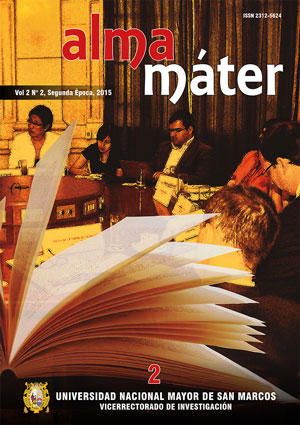EPISTEMOLOGICAL RUPTURES IN THE LATIN AMERICAN THOUGHT IN COMMUNICATION 1970-2000
Keywords:
Epistemological rupture, Latin American communication thought, Investigation.Abstract
The paper is part of epistemological ruptures in the Latin American media thought 1970-2000, research that we are developing at the Instituto de Investigaciones humanistic of the University national greater of San Marcos of the Peru. It arises as a general hypothesis that, in the Decade of the seventies, came the first epistemological rupture of Latin American broadcasters against the dominant American communication theory in Latin America. In this approach, discussed if indeed this epistemological rupture has occurred in the field of social communication and determine which is the nature of this. Research is a contribution to the field of epistemology of social communication in Latin America that allows to identify the changes in the Constitution and development of the Latin American communication thought.Downloads
Published
Issue
Section
License
Copyright (c) 2015 Franz Portugal Bernedo

This work is licensed under a Creative Commons Attribution-NonCommercial-ShareAlike 4.0 International License.

Alma máter segunda época by Vicerrectorado de Investigación y Posgrado is licensed under a Creative Commons Reconocimiento-NoComercial-CompartirIgual 4.0 Internacional License.
Creado a partir de la obra en http://revistasinvestigacion.unmsm.edu.pe/index.php/alma/index.
AUTHORS RETAIN THEIR RIGHTS:
a. Authors retain their trade mark rights and patent, and also on any process or procedure described in the article.
b. Authors retain their right to share, copy, distribute, perform and publicly communicate their article (eg, to place their article in an institutional repository or publish it in a book), with an acknowledgment of its initial publication in Alma máter segunda época.
c. Authors retain theirs right to make a subsequent publication of their work, to use the article or any part thereof (eg a compilation of his papers, lecture notes, thesis, or a book), always indicating the source of publication (the originator of the work, journal, volume, number and date).



